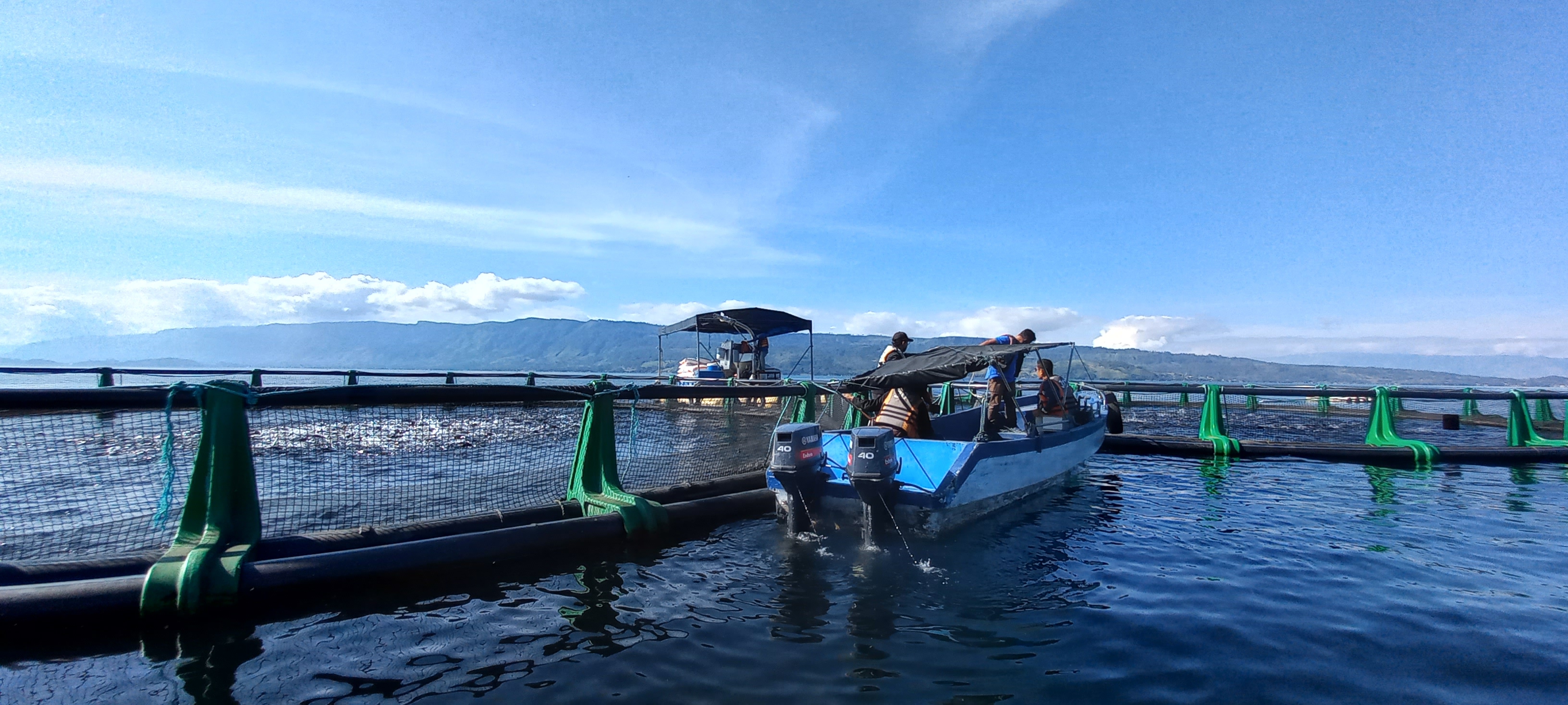One of the largest and deepest lakes in the world is held by Lake Toba in the North Sumatra Province. Even though this lake, which stands as the largest in the Southeast Asian region, has been crowned by the Ministry of Tourism and Creative Economy as a new icon of tourism in Indonesia showcasing natural beauty.
Considering historical, geographical, socio-cultural conditions, as well as the unique nature and topography, the development of Lake Toba's tourism still faces numerous obstacles to this day. Issues such as inadequate infrastructure, unprepared communities, and the polluted condition of Lake Toba's water hinder the optimal development of tourism in this area.
Specifically regarding water pollution in Lake Toba, LPDP has funded research on this issue titled "Conflict Resolution in the Use of Lake Toba's Natural Resources towards International Fisheries and Tourism Development." This research, now in its first year, has identified several factors contributing to water pollution, such as domestic waste, agricultural and forestry activities in the Lake Toba area, and floating net cage aquaculture (KJA).
However, the most highlighted and intriguing aspect, perceived by various parties as the primary cause of pollution, is the floating net cage aquaculture (KJA) in the Lake Toba waters. Prof. Manuntun Parulian Hutagaol, the head researcher on Lake Toba's water pollution, revealed that in 2017, the North Sumatra Provincial Government issued Decree No. 188.44/213/KPTS/2017 indicating a decline in Lake Toba's water quality, which had already reached a heavily polluted state.
"Establishing Lake Toba's carrying capacity for KJA at 10,000 tons per year from the current approximately 74,000 tons of fish is necessary," Prof. Parulian stated. He further added that the current situation has caused anxiety among KJA practitioners, both local ones and companies, as they are forced to drastically reduce their production or even close their businesses, which would significantly harm thousands of local KJA practitioners.
Given the issues highlighted by Prof. Parulian and his research team, potential conflicts in Lake Toba are expected to escalate due to the disruption of their main livelihood, the KJA fisheries.
The analysis of water quality and socio-economic analysis conducted by Prof. Parulian and his team suggests that efforts to reduce pollution in Lake Toba should be the responsibility of all stakeholders in maintaining the lake's water condition, including KJA practitioners, hotels and restaurants, agriculture, etc. The development plans for Lake Toba's tourism should align with the development of KJA.
The LPDP research team, accompanied by the Research Reviewer, Drs. Hendrie Adji Kusworo, M.Sc., Ph.D., had the opportunity to observe and directly review the implementation of the Lake Toba research to ensure that it continues within the appropriate boundaries and continues to address arising challenges. "Conflict resolution needs to be undertaken, such as improving Lake Toba's water quality management from a top-down approach towards co-management involving all parties," Prof. Adji suggested during the meeting with the North Sumatra Provincial Marine and Fisheries Office, their research partner.
Adji also emphasized the need for conservation integration in water quality management and the integration of KJA and Tourism. Echoing Adji's sentiments, several initial conflict resolution steps, previously mentioned by Prof. Parulian, include pushing for changes to the North Sumatra Governor's Decree No. 188.44/213/KPTS/2017 regarding Lake Toba's carrying capacity for fisheries. "For this purpose, an academic manuscript and a draft of the decree amendment have been prepared, which is also one of the outputs of this research activity as a recommendation for the North Sumatra Provincial Government. We hope that the draft decree can be facilitated by the North Sumatra Provincial Marine and Fisheries Office, our research partner," Prof. Parulian concluded.



